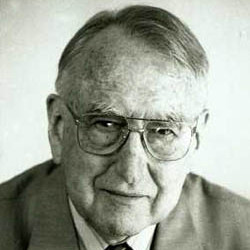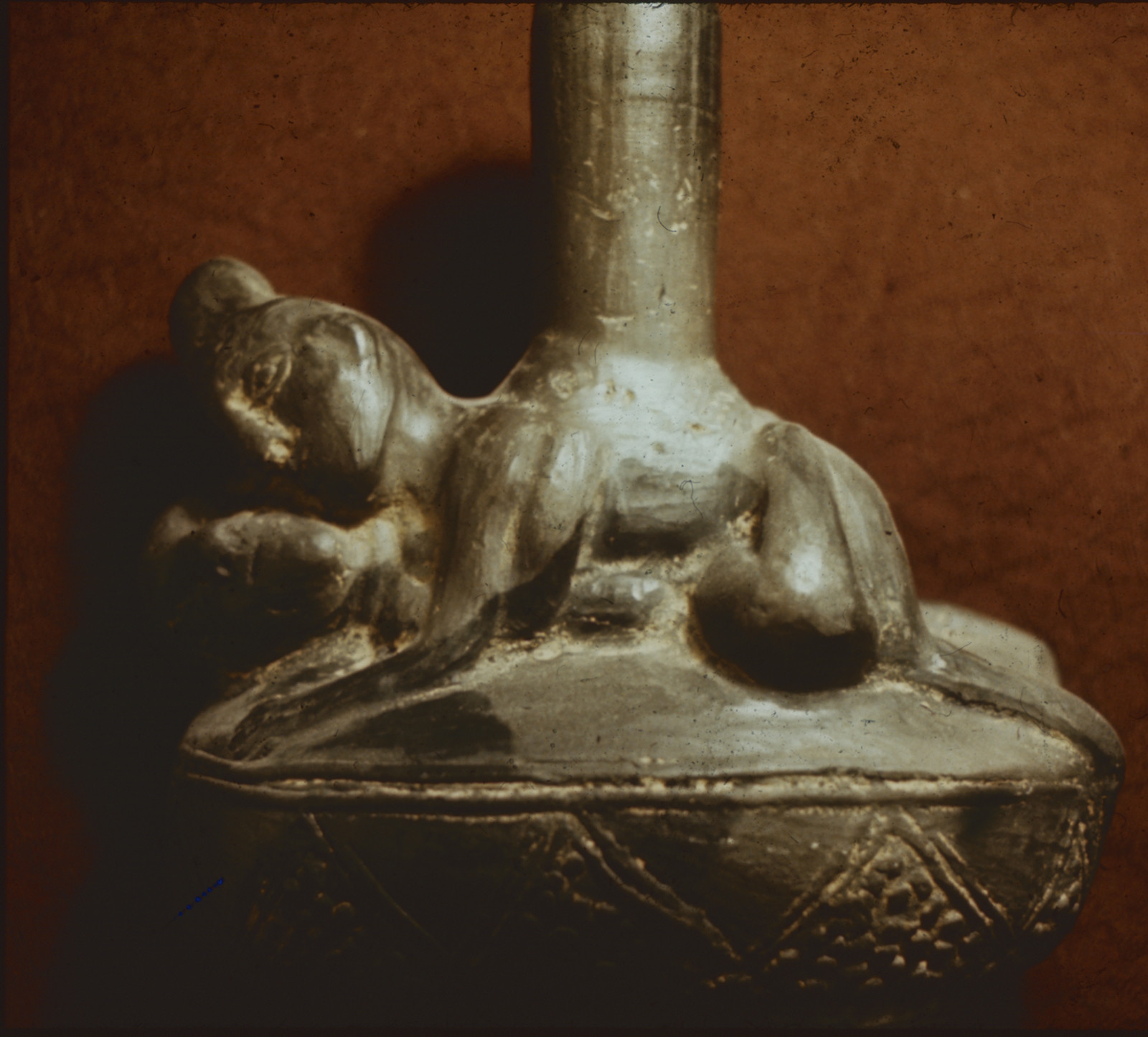The National Library of Medicine (NLM) stands as a treasure trove of historical medical knowledge, housing collections that span an astonishing range of subjects and materials. My recent internship within the Historical Audiovisuals program at the NLM’s History of Medicine Division offered a fascinating glimpse into the archival process. Tasks ranged from crafting film abstracts to meticulously cataloging audiocassettes and slide collections. During this time, I learned a crucial aspect of archival work: the frequent discovery of unprocessed and undocumented materials, waiting to be identified, organized, and described by archivists.
 Portrait photograph of John Money.
Portrait photograph of John Money.
One day, my supervisor, Sarah Eilers, presented me with a box simply labeled “John Money” in pencil. Inside, she explained, might be materials related to Dr. John Money, a figure renowned and controversial in the fields of gender and sexual identity. The contents, a mix of slides and papers, were unstudied, their connection to Dr. Money and his work uncertain. Before delving into the box, I researched the name and quickly discovered that Dr. John Money was indeed a pivotal, albeit paradoxical, figure in medical history. He is famously associated with the tragic gender reassignment case of twins David and Brian Reimer, yet also celebrated for his substantial contributions to the field of sexology. Dr. Money‘s extensive papers are archived at the Kinsey Institute for Research in Sex, Gender, and Reproduction at Indiana University, which even offers a research fellowship in his name, and his work continues to be a subject of contemporary discussion and debate.
Among the documents within the NLM box, some indicated a transfer from the University of Pittsburgh in the mid-1990s. The box contained medical slides, pamphlets, and, most notably, a transcript of a lecture by Dr. John Money delivered at Johns Hopkins University, provocatively titled “Pornography in the Home,” accompanied by 118 slides. This lecture, later published in 1973 within [Contemporary Sexual Behavior: Critical Issues in the 1970s], stemmed from the proceedings of the American Psychopathological Association’s sixty-first annual meeting. While an audio recording was mentioned, it was not found within the box. Despite its sensational title, the February 17, 1971 lecture was not solely focused on pornography. Instead, it addressed the critical need for open and honest sex education within homes and schools – a topic that remains intensely relevant and debated in the United States today.
In his lecture, Dr. Money tackled contemporary challenges and shortcomings in sex education, proposing potential solutions. While visual aids in sex education were a primary concern, he also highlighted enduring issues that resonate even 45 years later, such as the notable absence of the concept of love within sex education curricula.
“I have a kind of image in my mind of, five to seven thousand years or more ago, a conclave of priestly rulers who were extraordinarily clever. They came out of their conclave, having discovered the principle that the way to gain power over their people was to make them guilty about the functioning of the body with regard to sex. The power to make people guilty is also the power to make them conform.” Dr. John Money, 1971.
Dr. Money further investigated the historical roots of anti-sexual attitudes in America in his book, [The Destroying Angel]. He argued that suppressing natural curiosity and punishing questions about sexuality lead to significant problems. Reflecting on my own experience growing up in Mississippi, long after Dr. Money‘s critiques, I witnessed firsthand the inadequacy of sex education and its societal consequences. Mississippi currently faces alarming statistics, holding the second-highest rates of teen pregnancy and gonorrhea in the U.S., alongside some of the most restrictive sex-education policies. Mississippi House Bill 494, enacted in 2016, mandates that school districts choose between “abstinence-plus” or “abstinence-only” sex education programs. While sex education is technically required, the curriculum often barely scratches the surface of human sexuality. For instance, the “abstinence-plus” program might mention contraception and STIs like HIV/AIDS, but explicitly prohibits demonstrating the correct use of condoms. In The Destroying Angel, Dr. Money contended that the lack of explicit sex education and exposure to responsible pornography victimizes children, depriving them of essential knowledge and the opportunity to develop sound moral principles concerning sex.
 A tomb pottery piece depicting a sexual activity.
A tomb pottery piece depicting a sexual activity.
The discovered collection included the 118 slides Dr. Money used in his lecture. He began by showcasing erotic art from diverse global cultures and historical periods to “…remind you that the portrayal of sexual things is nothing special in our society and nothing new—that it has been with mankind probably for all of mankind’s history.” Dr. Money mentioned the museum in Lima, Peru, noting that its collection of tomb pottery depicted virtually every conceivable sexual position and act, illustrating the long and varied history of human sexual expression.
My time at the NLM ignited a deep interest in Dr. John Money and his contributions to sex education and sexology. Setting aside, for the moment, the acknowledged controversies, it becomes clear that Dr. Money genuinely aimed to foster open-mindedness and improve understanding towards individuals with sexual orientations and expressions outside societal “norms.” Exploring a medical field so heavily laden with cultural taboos undoubtedly presents considerable challenges. Dr. John Money possessed a complex and forward-thinking intellect, advocating ideas that were radically progressive, even shocking, for his time. I am eager to continue researching Dr. Money and the history of human sexuality—an area of study I might never have encountered were it not for the opportunity to explore, describe, and interpret one of the NLM’s hidden collections centered around Dr. John Money.
“One becomes better able to help others by achieving a position, and I want to weigh this word very carefully, of nonjudgementalism.” John Money

